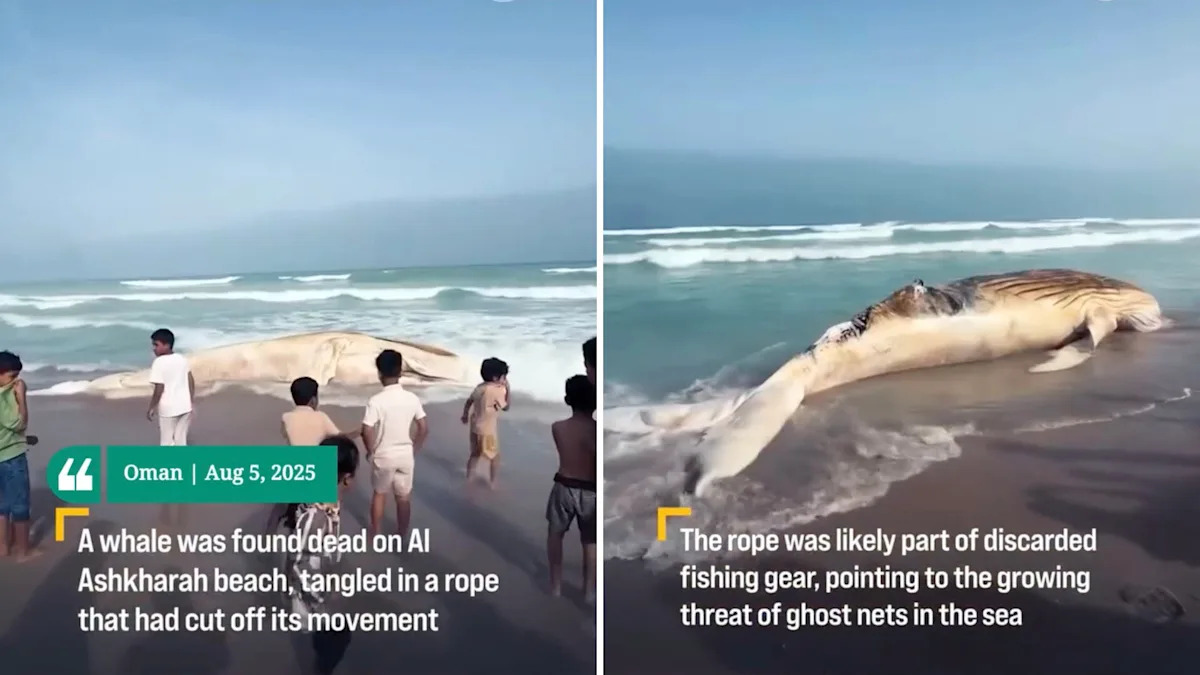Ghost gear may sound like an elaborate Halloween costume, but unfortunately, the truth is a lot scarier. Ghost gear refers to abandoned, lost, or improperly discarded fishing gear.
It’s no surprise that this gear can claim the lives of the smallest marine life, but it can also kill some of the largest animals in our oceans — including whales.
What’s happening?
A whale washed ashore on Al Ashkhara Beach in Oman. Environmental specialists from the Environment Department in South Al Sharqiyah Governorate were called to the scene to assess the situation and provide aid to the animal, according to the Times of Oman.
Specialists concluded that the cause of death was suffocation. The whale had been found restrained with ropes wrapped so tightly that the animal was severely restricted and could no longer breathe.
Why is marine debris important?
Ghost gear is considered the most dangerous form of marine plastic debris, as 500,000 to 1 million tons are added to the ocean every year, according to the World Wildlife Fund. As a WWF study detailed, millions of marine life are caught in “bycatch” and left to suffocate in the leftover nets dropped into the ocean by fishermen.
A 2024 local study, as reported by the Khaleej Times, revealed that the No. 1 cause of whales washing ashore in the UAE was death by entanglement in fishing gear. This indicates that marine debris has been a persistent issue in this region of the world and globally, and it is now threatening the populations of both previously thriving and already endangered species.
When a species’ health is threatened by manmade debris and pollution, it can throw local ecosystems out of whack and potentially disrupt entire food chains.
What’s being done about marine debris?
The Environment Authority used this tragedy as an opportunity to discuss the effects of marine debris and raise public awareness of plastic waste in the sea.
A total of 170 trillion microplastic particles can be found in the ocean, according to CNBC. We can reduce plastic waste by bringing reusable containers to the beach and taking all our trash with us when we leave. Additionally, we can grow our own food at home and prioritize zero-waste products to minimize plastic use. Furthermore, we can enforce fines for littering in our most fragile environments.
Join our free newsletter for good news and useful tips, and don’t miss this cool list of easy ways to help yourself while helping the planet.

